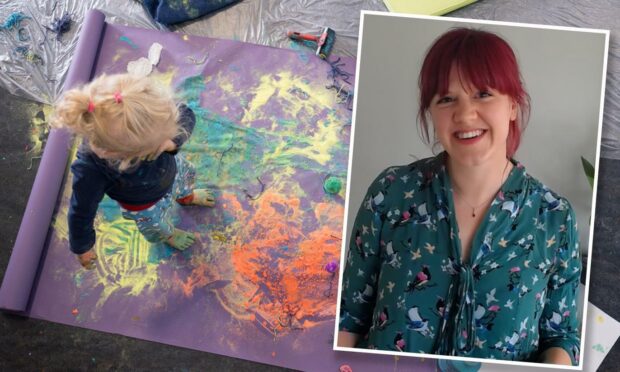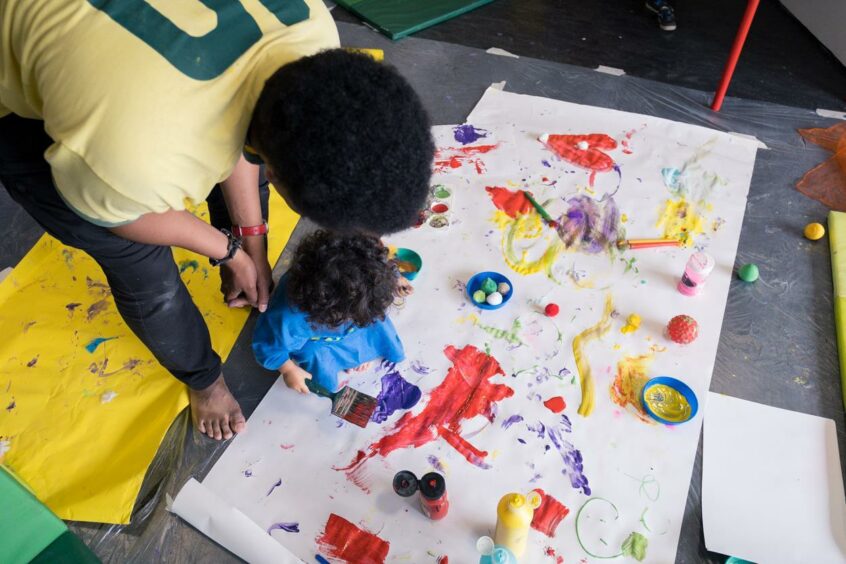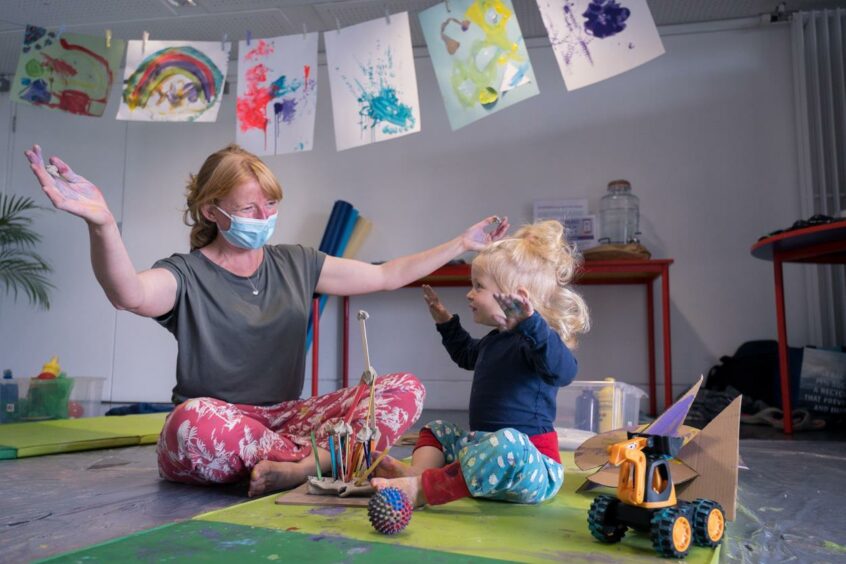A Dundee University PhD student has been awarded a prestigious national prize for her work using art to help local children and parents with difficult relationships.
Vicky Armstrong, who is also an art psychotherapist, has been awarded the RSE Innovator’s Prize for Public Engagement for her work in leading the Art at the Start project across Tayside.
What is the project?
Art at the Start, which Vicky leads alongside Dr Josephine Ross, is run in collaboration with Dundee Contemporary Arts (DCA) and looks at the impact arts participation can have upon the well-being of young children.
Vicky explained: “My background before I started the PhD is as an art therapist and I started running groups for parents and infants together as a way of supporting positive attachments.
“That’s developed into a PhD project at the university, which is a collaboration between the psychology department and the DCA.”
“We find that the art making together encourages a lot of behaviours that we know are good for attachment, like shared attention, eye and physical contact.
“The art making process itself is quite beneficial. So if you think about children playing with paint in their hand, they see the impact of that straight away. There’s a visible impact.”
Adapting to lockdown
Like with many things, the periods of lockdown posed a challenge for the project and restrictions on gatherings meant that in-person classes could not be run.
To to ensure families were still being reached during this time, the project decided to put together art boxes which could be distributed to families across the region.
This has led to a special Art at the Start book of ideas for children to try with grown ups, which will be launched later this month.
Have a look at what goes into every art box heading out this week to wee ones and their families, funded by @dundeeuni public engagement seed fund.
Hoping to inspire lots of creative playing together.@DCAdundee @HomeStartDundee @UoDPsychology @engageUoD pic.twitter.com/NnTUPVwoXy— Art at the Start (@ArtattheStart1) July 6, 2020
Vicky said: “Over lockdown we couldn’t see anyone face to face and three art therapy groups were due to start so we just had to abruptly cancel all of those.
“Instead we sent out boxes of art materials which came with a leaflet of ideas and what the benefits were (of art therapy).
“We did interviews with parents afterwards about what they had noticed with their wee ones and a lot of them said that they wouldn’t have thought about trying to make art at that age, or where to start.
“That’s developed into us making a book of art ideas. We have 12 families that either had the packs during lockdown or who came in to test out our activities, and all of that feedback has been turned into a book.”
Helping families is a “privilege”
The Prize for Public Engagement was awarded, in part, for the work project did to to adapt to the lockdown restrictions, and Vicky said she felt privileged to be have been able to continue helping families during Covid.
She said: “It was really nice to be nominated for the work that we have done to adapt over Covid to keep reaching families.”
“I feel like we were in a really privileged position to be flexible. We got bits of funding from the university to do that and it was great to be supported.
“People have been fantastic and supportive throughout and to get the award at the end of it, it’s a bonus!”
The prize is awarded by the Royal Society of Edinburgh, Scotland’s national academy of science and letters, and recognises those who are ”exemplary at communicating and facilitating engagement”.


